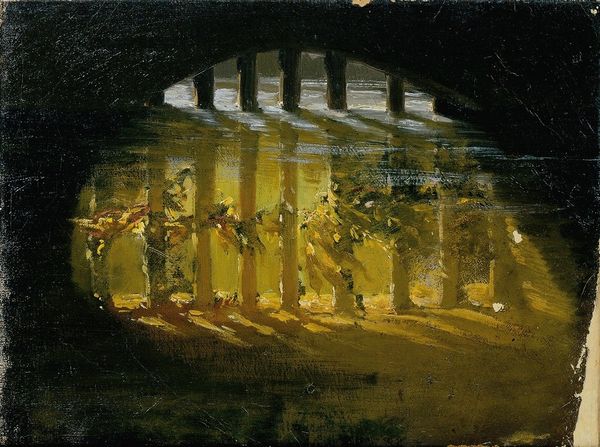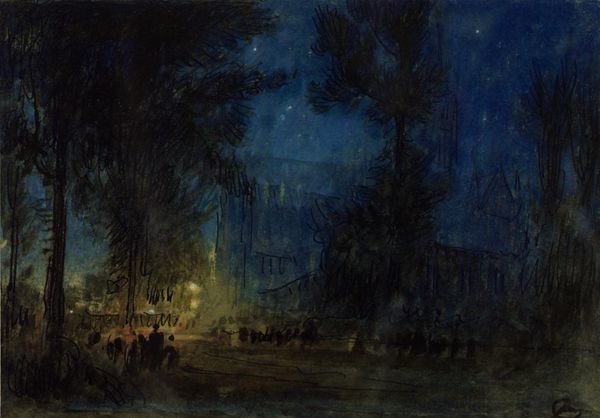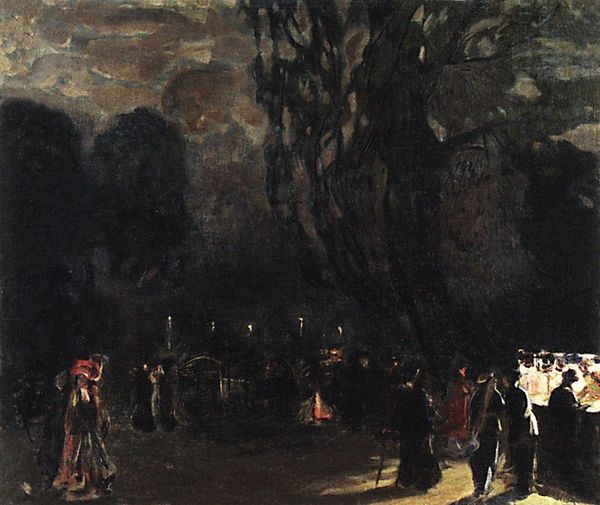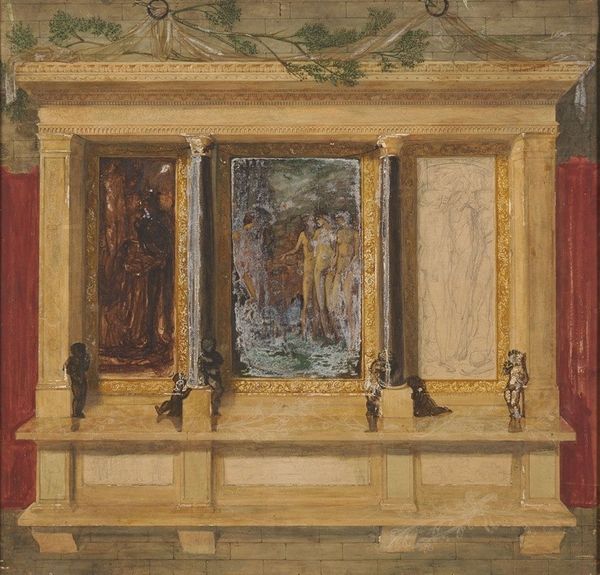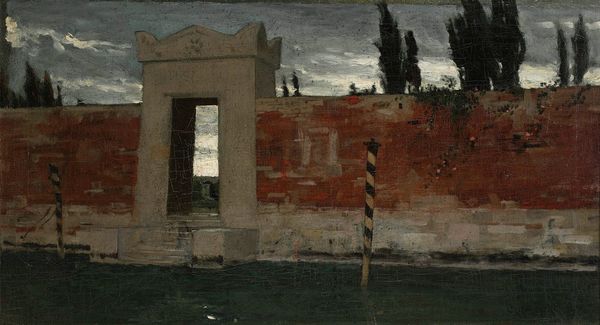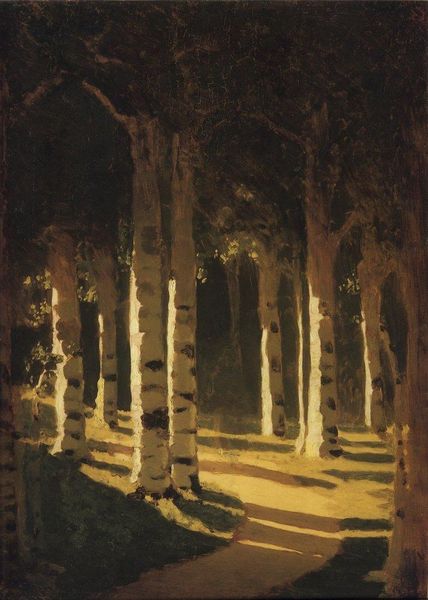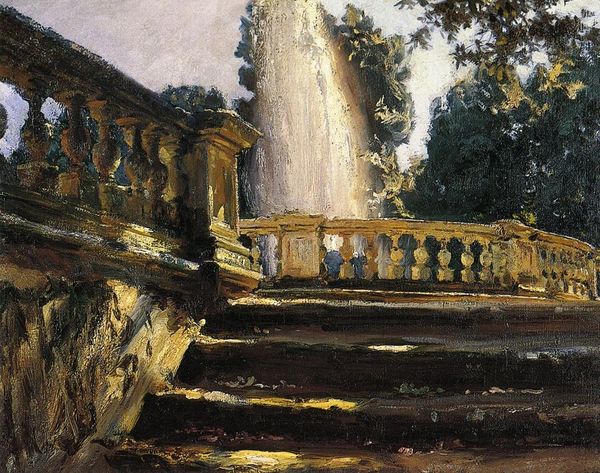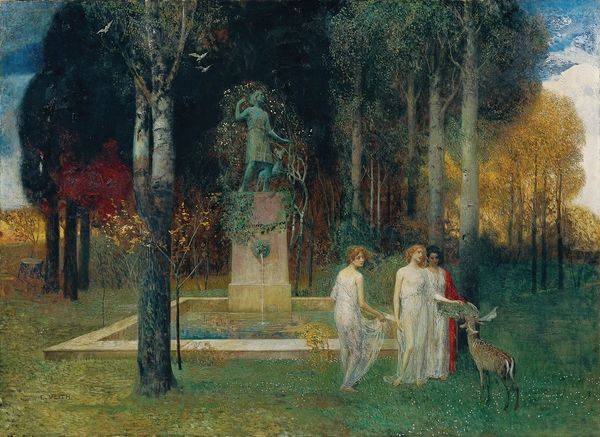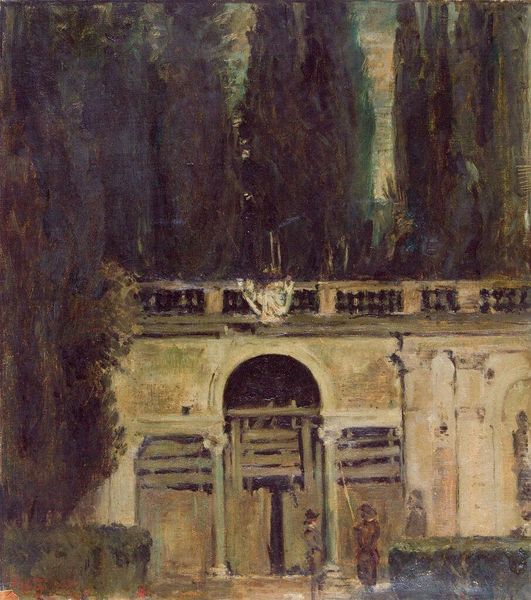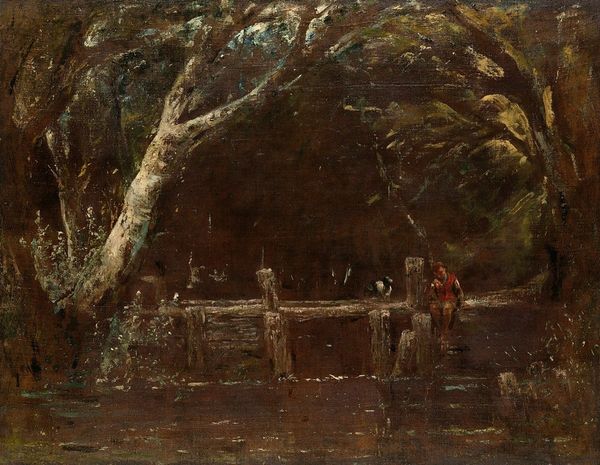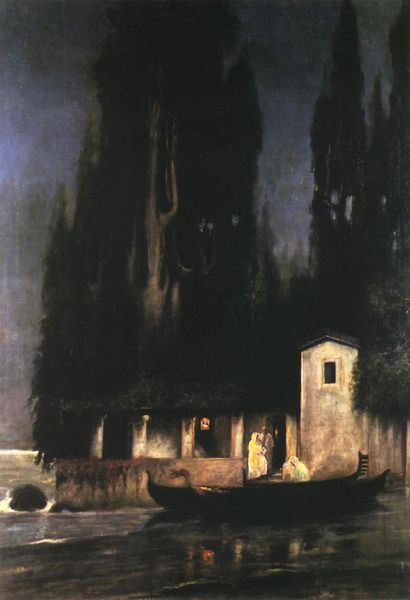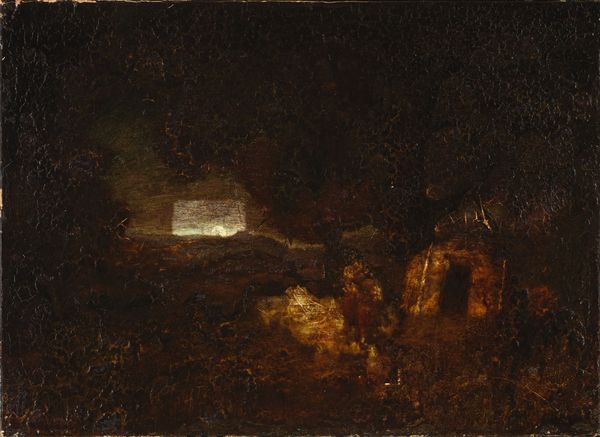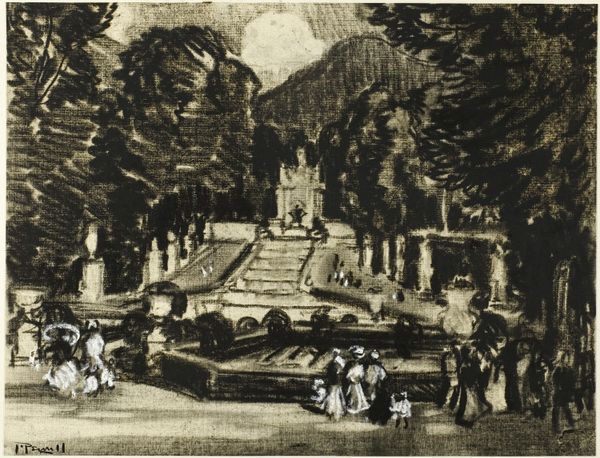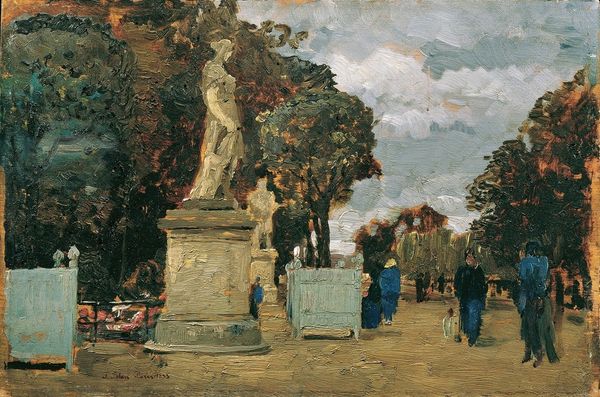
Le Mausolée provisoire de Jean-Jacques Rousseau, sur le bassin des Tuileries, avant la translation de ses cendres au Panthéon. Nuit du 10 au 11 octobre 1794 1794
0:00
0:00
painting, oil-paint
#
night
#
neoclacissism
#
painting
#
oil-paint
#
landscape
#
oil painting
#
history-painting
Copyright: Public Domain: Artvee
Curator: This oil painting by Hubert Robert, completed in 1794, is titled "Le Mausolée provisoire de Jean-Jacques Rousseau, sur le bassin des Tuileries, avant la translation de ses cendres au Panthéon. Nuit du 10 au 11 octobre 1794." Editor: Wow. Immediately, the scene gives me a sense of eerie solemnity—the hushed darkness, the glowing candlelight...it's like a dream of history. Curator: Indeed. The composition relies heavily on the contrast between light and shadow, a technique known as chiaroscuro, to enhance the dramatic effect and draw attention to the temporary mausoleum constructed for Rousseau. Editor: That stark illumination feels very intentional. It makes the temple almost float ethereally. Considering this was during the Revolution, how does its neoclassical form play into that volatile context? Curator: The neoclassical architecture certainly evokes a sense of order and reason, aligning with the Enlightenment ideals that influenced the Revolution, although in a somewhat idealized fashion. Notice how the structure itself, though temporary, suggests permanence and reverence. Editor: There is a strong feeling of staged theatricality in it, you know? Like we're peering in on a carefully directed play where memory is the stage and grief is the script. Do you think Robert was making a statement about how the Revolution was already mythologizing its heroes? Curator: That’s an interesting thought, the subtle figures in the foreground almost becoming spectators themselves. The carefully constructed image certainly hints at an orchestrated commemoration, subtly raising questions about the Revolution's relationship with its philosophical forefathers. Editor: This really illustrates how a painting can be so much more than what it literally depicts—the play of light, the historical context... it all converges to create a quietly unsettling atmosphere. Curator: Agreed, its visual rhetoric effectively blends reverence with a subtle critique of the revolutionary fervor surrounding Rousseau's legacy. Editor: It’s a thoughtful memorial that feels as heavy with historical awareness as it does grief- it’s truly evocative.
Comments
No comments
Be the first to comment and join the conversation on the ultimate creative platform.
